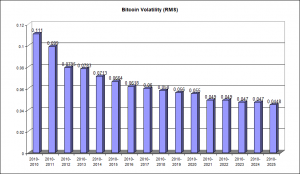Japan’s Bitcoin reform: A 20% tax era is coming, but will it spark ETF momentum?
Key Takeaways
What’s behind Japan’s crypto tax plans?
To remain competitive in the global crypto space, per requests from the Japan Business Association.
What’s the overarching impact of the tax reliefs?
It could potentially drive Japan’s crypto adoption even further, following the momentum seen in 2025 after the overhaul of stablecoin rules.
Japan will move forward with initial plans to classify crypto assets, including Bitcoin [BTC] and Ethereum [ETH], as “financial products” similar to stocks.
According to a local Asahi publication, citing sources familiar with the Financial Services Agency, the regulator has reportedly requested a reduction in tax rates to match those of stocks.
For perspective, crypto has been legal in Japan since 2017 and is classified as a “means of settlement’ or as a payment tool under the Payment Services Act (PSA).
However, it has attracted a high tax rate of up to 55%.
Now, the reclassification under the Financial Instruments and Exchange Act would only attract a 20%, similar to the tax rate on capital gains linked to stocks.
The move will cover 105 crypto assets, including BTC and ETH, and exchanges must disclose information about these assets.
Japan’s crypto overhaul and impact
Notably, the proposed tax reform is expected to be considered in 2026, which would pave the way for relief and potentially accelerate crypto adoption in Japan.
The above proposals, particularly those involving tax rate cuts, were first floated in August to pave the way for the adoption of crypto ETFs.
To mitigate insider trading and enhance investor protections, similar to those in the securities sector, the FSA also proposed strict insider trading rules for the crypto sector, especially players like Metaplanet.
The tax plans also followed reform requests by the Japan Business Association (JBA) to ensure the country remains competitive in the global Web3 space.
ETF pressure rises across major markets
The United States approved spot BTC and ETH ETFs in 2024. Other regions moved soon after, with Hong Kong and the U.K. advancing launches. Japan could approve its own ETF framework by 2027.
And the urgency makes sense. Japan experienced the highest crypto growth in the APAC region in 2025, recording a 120% surge in on-chain value received, according to Chainalysis.
Per Chainalysis, the regulatory overhaul was a key driver in Japan’s renewed crypto momentum, especially on the stablecoin front.
Given the reclassification and associated tax relief for crypto assets and expected ETFs, perhaps the momentum may continue.














Post Comment